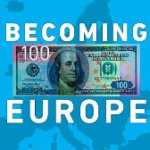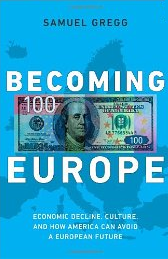Deprecated: trim(): Passing null to parameter #1 ($string) of type string is deprecated in
/home/aoiusa/public_html/wp-content/plugins/sexybookmarks/public.php on line
388
Deprecated: trim(): Passing null to parameter #1 ($string) of type string is deprecated in
/home/aoiusa/public_html/wp-content/plugins/sexybookmarks/public.php on line
394
Deprecated: trim(): Passing null to parameter #1 ($string) of type string is deprecated in
/home/aoiusa/public_html/wp-content/plugins/sexybookmarks/public.php on line
400
 How much of the activism of the Progressive wing of American Christianity (including some Orthodox participants unfortunately) in the current budget battles is nothing more than grabbing its piece of the federal pie before the welfare state collapses?
How much of the activism of the Progressive wing of American Christianity (including some Orthodox participants unfortunately) in the current budget battles is nothing more than grabbing its piece of the federal pie before the welfare state collapses?
Progressives like Jim Wallis and others routinely use the moral imperatives of the gospel to justify their Progressive moral vision. They conflate the imperatives into Progressive ideology to persuade the unsuspecting that the Gospel of Jesus Christ and Progressive ideology are one and the same. They are, at heart, statists who refuse to examine the soul stultifying and character destroying dependencies that statism fosters.
Welfare states are dying because this albatross of good intentions is not economically viable. Welfare states can only exist on borrowed money. Once the bills come due, as they have for America and all the countries of Western Europe, change is inevitable and necessary. “Christian” Progressives understand this as well as anybody. That’s why the endless moral condemnations by Wallis and other Progressives towards those who value liberty and individual responsibility are delivered at warp speed.
The article below examines the responsibility of Christians in a post-welfare state economy. The author, Samuel Gregg, makes some very good points including:
In crisis, the cliché goes, we find opportunity. Instead of engaging in politically exciting but ultimately futile rearguard-actions to defend welfare-states crumbling under the weight of decades of irresponsible spending, the coming post-welfare state age could be a chance for a Renaissance in Christian thought about the whys and hows of loving those to whom Christ Himself devoted special attention.
Gregg draws on Christian history, particularly the Early Church, to show that a return to Christian moral foundations can give us some direction on how to address the wrenching change that the collapse of the welfare state portends. In the early years, Christians took care of the unwanted, the cast-offs of society. Their actions were driven by a deep and abiding faith in the risen Christ that became a powerful and compelling testament to the mercy of God and commended the Christian faith to the consciences of their pagan neighbors. David Bentley Hart describes this in his book Atheist Delusions: The Christian Revolution and Its Fashionable Enemies. Gregg argues that this depth of faith and moral clarity will be needed in our future.
Is Gregg an idealist? Has Christianity lost its salt? Not necessarily. Think back on New Orleans and Hurricane Katrina. Once the bluster and finger-pointing subsided, what happened? Thousands of people ravaged by the disaster were relocated to different cities. This unprecedented migration was an entirely private effort, and it was organized and driven by Christians. That kind of character, rooted deeply in Christian morality and tradition, might be our future.
Don’t be surprised when you see “Christian” Progressive voices grow increasingly shrill over the next few years. These aging Boomers are witnessing the self-serving idealism they adopted in the 1960s and 1970s fade into irrelevance and they don’t like it. This is their last gasp, their last attempt at carving out a society built on the wayward notions of “social justice” they hold so dear to their hearts. Time will pass them by, but not without a fight.
Source: American Spectator | Samuel Gregg
As the debt-crisis continues to shake America’s and Europe’s economies, Christians of all confessions find themselves in the unaccustomed position of debating the morality and economics of deficits and how to overcome them.
At present, these are important discussions. But frankly they’re nothing compared to the debate that has yet to come. And the question is this: How should Christians realize their obligations to the poor in a post-welfare state world?
However the debt-crisis unfolds, the Social Democratic/progressive dream of a welfare state that would substantially resolve questions of poverty has clearly run its course. It will end in a fiscal Armageddon when the bills can’t be paid, or (and miracles have been known to happen) when political leaders begin dismantling the Leviathans of state-welfare to avert financial disaster.
Either way, the welfare state’s impending demise is going to force Christians to seriously rethink how they help the least among us.
Why? Because for the past 80 years, many Christians have simply assumed they should support large welfare states. In Europe, Christian Democrats played a significant role in designing the social security systems that have helped bankrupt countries like Portugal and Greece. Some Christians have also proved remarkably unwilling to acknowledge welfarism’s well-documented social and economic dysfunctionalities.
As America’s welfare programs are slowly wound back, those Christian charities who have been heavily reliant upon government contracts will need to look more to the generosity of churchgoers — many of whom are disturbed by the very secular character assumed by many religious charities so as to enhance their chances of landing government contracts.
Another group requiring attitude-adjustment will be those liberal Christians for whom the essence of the Gospel has steadily collapsed over the past 40 years into schemes for state-driven wealth redistributions and promoting politically-correct causes.
The welfare state’s gradual collapse presents them with somewhat of an existential dilemma. The entire activity of lobbying for yet another welfare program will increasingly become a superfluous exercise — but this has been central to their way of promoting the poor’s needs for years.
More-pragmatic liberal Christians will no doubt adjust. Others, however, will simply deny fiscal reality and frantically lobby for on-going redistributions of an ever-shrinking pool of funds.
But even those Christians who have long moved past the heady-days of the ’60s and ’70s — or who never actually drank the kool-aid — will have their own challenges in a post-welfare state era.
One will be financial. Will Christians be willing to reach even further into their pockets to help fill the monetary gaps caused by on-going reductions in government welfare-spending?
For American Christians, this will be less of a struggle. They’re already among the world’s most generous givers. For European Christians, however, it will require a revolution in giving-habits. Many of them have long assumed that paying the taxes that fund welfare programs somehow fulfilled their obligations to their neighbor.
But the more important, long-term challenge posed by significant welfare state reductions will be less about money and more about how Christians will take concrete personal responsibility for those in need.
Here Catholics, Orthodox, and the many Protestant confessions will find helpful guidance in Benedict XVI’s 2005 encyclical Deus Caritas Est.
Among other things, this text reminds Christians that poverty is more than a material phenomenon. It also has moral and spiritual dimensions: i.e., precisely those areas of human life that welfare states have never been good at — or interested in — addressing.
For Christians, humans are more than mere mouths. They know moral and spiritual poverty can be as devastating as material deprivation. This expansive understanding of poverty has enormous potential to help Christians correct materialist assumptions about human needs.
Another source of inspiration — especially for Americans — may be Alexis de Tocqueville’s great book, Democracy in America . Among other things, this nineteenth-century text illustrates how American churches played the predominant role in helping those in need in an America in which government was the means of last resort when it came to poverty.
. Among other things, this nineteenth-century text illustrates how American churches played the predominant role in helping those in need in an America in which government was the means of last resort when it came to poverty.
Lastly, there is the example of the ancient church. The early Christians didn’t imagine that lobbying Roman senators to implement welfare programs was the way to love their neighbor. Instead, to the pagan world’s amazement, the early Christians — bishops, priests and laity — helped anyone in need in very direct, practical ways.
As anyone who has read the Church Fathers knows, the early Christians went out of their way to personally care for the poor, the incurably-sick, and the disabled — the very groups who were non-persons to the pagan mind.
Moreover, the Christians undertook such activities at their own expense, and often put their own lives at risk. When plagues came and everyone else fled, Christians generally stayed behind, refusing to abandon those in distress, regardless of their religion.
In crisis, the cliché goes, we find opportunity. Instead of engaging in politically exciting but ultimately futile rearguard-actions to defend welfare-states crumbling under the weight of decades of irresponsible spending, the coming post-welfare state age could be a chance for a Renaissance in Christian thought about the whys and hows of loving those to whom Christ Himself devoted special attention.
Yes, that means abandoning much of the framework that dominated 20th-century Christian reflection upon these questions. But anyone interested in serving the poor rather than their own ego or career-advancement shouldn’t hesitate to take such risks.
The poor’s spiritual and material well-being demands nothing less.
Samuel Gregg is Research Director at the Acton Institute. He has authored several books including On Ordered Liberty: A Treatise on the Free Society, his prize-winning The Commercial Society: Foundations and Challenges in a Global Age, and Wilhelm Ropke’s Political Economy.
Read the entire article on the American Spectator website (new window will open). Reprinted with permission.

 An excerpt from an essay published on OrthodoxyToday.org.
An excerpt from an essay published on OrthodoxyToday.org.



